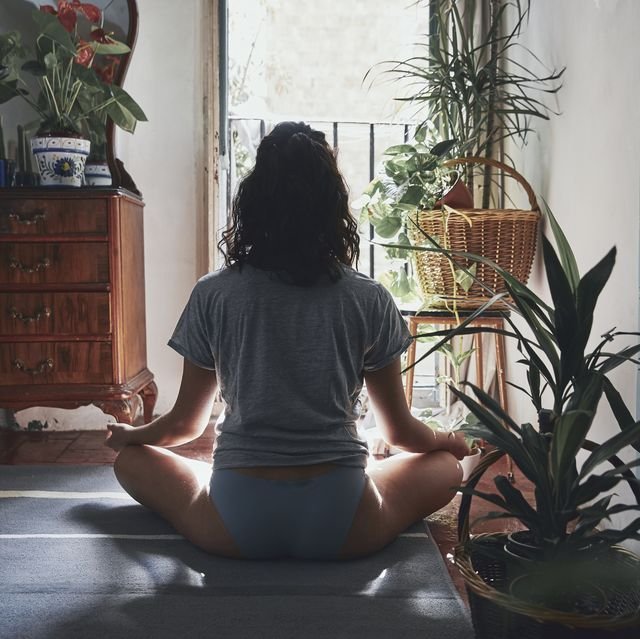Fight Fatigue: 10 Self-Care Ideas to Restore Your Spark
In today’s fast-paced world, exhaustion has become an all-too-common experience for many. As we juggle various roles and responsibilities, it’s easy to neglect our own well-being. However, self-care is not a luxury; it’s a necessity for maintaining both physical and mental health. This article will explore ten effective self-care ideas to help you recharge when you’re feeling drained, along with the science behind why they work.
Understanding Exhaustion and the Importance of Self-Care
Before diving into specific self-care activities, it’s crucial to understand what exhaustion is and why self-care is so important. Exhaustion is more than just feeling tired; it’s a state of physical, emotional, and mental depletion that can lead to burnout if not addressed. The World Health Organization (WHO) defines self-care as “the ability of individuals, families, and communities to promote health, prevent disease, maintain health, and to cope with illness and disability with or without the support of a healthcare provider”.

This definition underscores the broad scope of self-care, encompassing both physical and mental health aspects. Dr. Saundra Dalton-Smith, a physician and author, identifies seven types of rest we need: physical, mental, spiritual, emotional, social, sensory, and creative. She explains, “Each type of rest has its own benefits and is essential for overall wellbeing” . Understanding these different types of rest can help us tailor our self-care practices to address our specific needs.
OUR QUICK TIPS :
MEDITATE ( USE INTERNET OR YOUTUBE )

DO BREATHWORK ( USE INTERNET OR YOUTUBE )

DO YOGA TO BOOST YOUR HORMONES

HAVE A GREAT HEALTHY MEAL

GO EARLY TO BED

GO FOR A WALK IN THE NATURE

TAKE SOME SUPPLEMENT TO BALANCE YOUR VITAMINS AND MINERALS LEVELS

SURROUND YOURSELF WITH YOUR LOVED ONE OR YOUR PETS

WATCH A MOVIE OR READ A BOOK IN A VERY COZY ATMOSPHERE

TRY A SAUNA OR STEAM ROOM FOR BODY MIND RECOVERY

TRY SOUND HEALING OR SOUND THERAPY

JUST DO NOTHING FOR A FEW HOURS, NO PHONE, JUST YOU

1. Prioritize Sleep: The Foundation of Self-Care

Getting enough sleep is perhaps the most fundamental form of self-care. Sleep is crucial for physical recovery and repair, supporting muscle growth, tissue repair, and overall physical health. It also enhances cognitive function, mood regulation, and the immune system.
To improve your sleep hygiene:
- Stick to a consistent sleep schedule, even on weekends
- Create a relaxing bedtime routine
- Ensure your bedroom is dark, quiet, and cool
- Limit screen time before bed
Dr. Michael Breus, a clinical psychologist and sleep expert, states, “Getting enough sleep is one of the most effective self-care practices. It impacts everything from mood and energy levels to immune function and heart health”.
2. Engage in Regular Exercise: Boost Your Energy and Mood

Physical activity is a powerful tool for combating exhaustion and improving overall well-being. Regular exercise has numerous health benefits, including:
- Reducing the risk of chronic diseases such as heart disease, stroke, and type 2 diabetes
- Improving mental health by reducing symptoms of depression and anxiety
- Enhancing energy levels and cognitive function
- Supporting weight management and bone health
Even when you’re feeling exhausted, incorporating some form of physical activity into your daily routine can make a huge impact. Start small with a short walk in the fresh air or gentle stretching exercises. As your energy levels improve, you can gradually increase the intensity and duration of your workouts.
3. Practice Mindfulness and Meditation: Cultivate Inner Peace

Mindfulness and meditation are great ways to reduce stress, improve mental clarity, and enhance overall emotional well-being. Dr. Andrew Weil, a renowned integrative medicine expert, advocates for the use of mindfulness and meditation as self-care practices. He explains, “Mindfulness and meditation are great ways to reduce stress and improve mental clarity. They help you stay present and focused, which is essential for managing daily stressors”.
To incorporate mindfulness into your self-care routine:
- Use a meditation app to guide you through daily practice
- Take slow breaths and focus on the present moment throughout the day
- Practice mindful eating by savoring each bite of your meals
- Engage in a mindful walk, paying attention to your surroundings and bodily sensations
Studies have shown that mindfulness-based interventions can significantly reduce emotional exhaustion and depersonalization while increasing self-compassion among healthcare workers. These benefits can extend to individuals in various roles and professions.
4. Nourish Your Body with Good Nutrition

A healthy diet is a cornerstone of self-care, providing the nutrients necessary for optimal physical and mental functioning. Good nutrition supports:
- Heart health by reducing the risk of cardiovascular disease
- Weight management and stable energy levels
- Mental health by providing essential nutrients for brain function
- Bone health through adequate intake of calcium and vitamin D
To improve your nutrition as a form of self-care:
- Incorporate a variety of fresh fruits and vegetables into your meals
- Choose whole grains over refined carbohydrates
- Include lean proteins and healthy fats in your diet
- Stay hydrated by drinking plenty of water throughout the day
Remember, self-care means listening to your body’s needs. While it’s important to maintain a balanced diet, it’s also okay to indulge in comfort foods occasionally as part of your emotional self-care.
5. Create a Relaxing Environment: The Power of Sensory Self-Care

Your environment can have a significant impact on your stress levels and overall well-being. Creating a relaxing space at home is an easy way to practice self-care on a daily basis. Consider the following ideas:
- Use essential oils in a diffuser to create a calming atmosphere
- Declutter your living space to reduce visual stress
- Incorporate plants into your home for improved air quality and a connection to nature
- Create a cozy corner with soft blankets and pillows for relaxation
For those working from home, designating a specific area for work can help maintain boundaries between professional and personal life, which is crucial for mental wellbeing.
6. Connect with Others: The Importance of Social Self-Care

Human beings are inherently social creatures, and maintaining strong relationships is an essential aspect of self-care. Social connections can provide emotional support, reduce stress, and contribute to overall life satisfaction.
Ways to incorporate social self-care into your routine:
- Schedule regular video conferences or phone calls with friends and family members
- Join a club or group that shares your interests
- Volunteer for a cause you care about
- Plan social events, even if they’re small gatherings
Dr. Pooja Lakshmin, a psychiatrist and author, emphasizes the importance of setting boundaries in social interactions as part of self-care. She states, “Self-care is about setting boundaries and saying no to things that drain your energy. It’s about prioritizing your own needs and recognizing that you deserve care and attention”.
7. Engage in Creative Activities: Nurture Your Inner Artist

Engaging in creative activities can be a great form of self-care, providing an outlet for self-expression and stress relief. Whether it’s painting, writing, playing music, or crafting, creative pursuits can help you enter a flow state, reducing anxiety and improving mood.
To incorporate creative self-care into your routine:
- Set aside specific time for creative activities
- Try a new skill or hobby that interests you
- Join a local art class or online creative community
- Use adult coloring books for a simple, relaxing creative outlet
Remember, the goal is not to produce masterpieces but to enjoy the process and express yourself freely.
8. Practice Self-Compassion: Be Kind to Yourself

Self-compassion is a powerful tool for maintaining emotional health and resilience. Dr. Kristin Neff, a pioneer in the field of self-compassion, notes, “Self-compassion involves treating yourself with the same kindness and care you would offer a good friend. It is a powerful tool for emotional resilience and mental health”.
To practice self-compassion:
- Speak to yourself kindly, especially when facing challenges
- Acknowledge that everyone makes mistakes and experiences difficulties
- Take breaks when needed without feeling guilty
- Celebrate your accomplishments, no matter how small
Incorporating self-compassion into your daily life can help reduce symptoms of depression and anxiety while improving overall well-being.
9. Establish a Self-Care Routine: Consistency is Key

Creating a consistent self-care routine is one of the best ways to ensure you’re taking good care of yourself on a regular basis. This doesn’t mean you need to dedicate hours each day to self-care activities; even small things done consistently can have a significant impact.
Tips for establishing a self-care routine:
- Start with small, manageable self-care activities
- Incorporate self-care into your daily routine, such as taking a few minutes for deep breathing exercises before bed
- Use a planner or app to schedule self-care activities
- Be flexible and adjust your routine as needed
Remember, the goal is to make self-care a sustainable part of your lifestyle, not another item on your to-do list that causes stress.
10. Seek Professional Support When Needed

While self-care practices can significantly improve your well-being, there may be times when professional support is necessary. Seeking help from mental health professionals or your primary care doctor is a form of self-care in itself.
Signs that you might benefit from professional support include:
- Persistent feelings of sadness or anxiety
- Difficulty managing daily tasks
- Substance use challenges
- Physical symptoms without clear medical causes
Dr. Matthew Glowiak, a clinical faculty member at Southern New Hampshire University, emphasizes, “Self-care is not a luxury, but a necessity. It is about taking the time to care for yourself in ways that are meaningful and effective for you”. This includes recognizing when you need additional support and taking action to get it.
Optimize Cortisol Levels: Cortisol, the “stress hormone,” plays a crucial role in energy regulation. To manage cortisol effectively:Practice stress-reduction techniques like mindfulness or meditation Maintain a consistent sleep schedule to support your body’s natural cortisol rhythm
Practice stress-reduction techniques like mindfulness or meditation
Maintain a consistent sleep schedule to support your body’s natural cortisol rhythm
Support Melatonin Production: Melatonin is essential for regulating sleep-wake cycles. To enhance melatonin production:Limit blue light exposure in the eveningCreate a dark, cool sleeping environment
Limit blue light exposure in the evening
Create a dark, cool sleeping environment
Balance Insulin: Insulin is key for energy metabolism. To optimize insulin function:Consume a diet rich in protein, fiber, and healthy fats Engage in regular physical activity to improve insulin sensitivity
Consume a diet rich in protein, fiber, and healthy fats
Engage in regular physical activity to improve insulin sensitivity
Boost Thyroid Function: Thyroid hormones are critical for metabolism and energy. Support thyroid health by:Ensuring adequate iodine intake through diet or supplements (under medical supervision)Managing stress, as chronic stress can impact thyroid function
Ensuring adequate iodine intake through diet or supplements (under medical supervision)
Managing stress, as chronic stress can impact thyroid function
Exercise Strategically: Regular physical activity enhances hormone receptor sensitivity, improving overall hormonal balance
Prioritize Sleep: Quality sleep is crucial for hormone regulation. Aim for 7-9 hours of sleep per night and practice good sleep hygiene
Optimize Nutrition: Consume a balanced diet rich in nutrients that support hormone production, such as vitamin D, magnesium, and B vitamins
Conclusion: The Ongoing Journey of Self-Care
Self-care is not a one-time event but an ongoing practice that evolves with your needs and circumstances. By incorporating these ten self-care ideas into your life, you can build resilience, improve your physical and mental health, and better manage the challenges of daily life.

Remember, self-care looks different for everyone. What works for one person may not work for another. The key is to find activities that resonate with you and make you feel genuinely cared for and rejuvenated. As you explore different self-care practices, be patient with yourself and celebrate the small steps you take towards better self-care.In the words of the World Health Organization, self-care is about “the ability of individuals, families, and communities to promote health, prevent disease, maintain health, and to cope with illness and disability”.

By prioritizing self-care, you’re not just taking care of yourself; you’re contributing to a healthier, more resilient community.So, the next time you’re feeling exhausted, remember that taking time for self-care is not selfish—it’s essential. Your well-being matters, and by taking good care of yourself, you’ll be better equipped to handle life’s challenges and enjoy its joys to the fullest.

